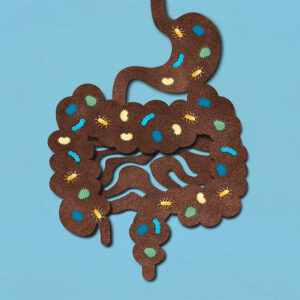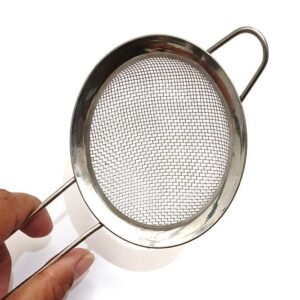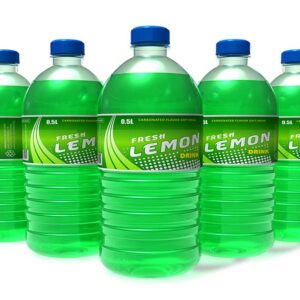
Mysterious Belly Link to Alzheimer’s REVEALED
A new study on Alzheimer’s reads a lot like a good detective story…
Researchers followed a “wild” hunch, and the clues they uncovered revealed a potential new culprit behind the mystery of this devastating disease.
Now, their breakthrough discovery has us looking at the belly INSTEAD of the brain.
Until the early 1980s, one of the main culprits behind stomach ulcers was ALSO a mystery. Ulcers were typically blamed on stress or eating spicy foods.
Then, in 1982, two brilliant Australian professors cracked the case.
They discovered the presence of a bacterium later named Helicobacter pylori (H. pylori) and identified its role in producing the majority of duodenal and gastric ulcers.
Now, another mystery owes a nod to these two Nobel Prize-winning scientists and their discovery. Because new research points a finger at the SAME bacteria as playing a role in Alzheimer’s.
It’s a surprising and intriguing connection.
According to a new study, published in the journal Alzheimer’s and Dementia, H. pylori has been hiding ANOTHER sinister secret. It’s associated with a disturbing 11 percent increase in the risk of developing Alzheimer’s.
The research opens up a whole new avenue to explore in trying to identify the missing piece in the Alzheimer’s puzzle.
Perhaps purging these bacteria from the body can reduce the risk of this devastating disease. And it’s another critical reminder that maintaining good gut health can have benefits that go WAY beyond our bellies!
The top three red flags that could indicate you have an H. pylori infection are stomach pain, nausea, and, of course, ulcers.
More severe H. pylori infections can also cause fatigue, malnutrition, unexplained weight loss, and anemia.
Contact your doctor for a diagnosis if you’re experiencing any of these symptoms.
For a confirmed infection, the typical treatment is antibiotics.
But there are some natural approaches you can take that could suppress the bug in the first place:
- Probiotics: Eating probiotic-rich foods like yogurt, kefir, sauerkraut, and kimchi repopulate the gut with good bacteria that could crowd out H. pylori. Lactobacillus and Bifidobacterium are currently the most promising strains.
- Broccoli Sprouts: Broccoli sprouts are rich in sulforaphane, which has natural antibacterial effects that may suppress H. pylori growth.
- Green Tea: Studies show that compounds in green tea called catechins have antibacterial effects against H. pylori. Drink up to three cups daily.
- Garlic: Garlic contains the compound allicin, which is another natural antibacterial. If you’re a garlic fan you can eat one to two crushed, raw garlic cloves daily.
- Berries: Berries such as strawberries and blueberries are rich in antioxidants called flavonoids that may inhibit H. pylori adhesion and growth.
- Vitamin C: Some research indicates vitamin C acts as an antioxidant suppressing the growth of H. pylori. Aim for at least 500 mg of vitamin C daily through diet or supplements.
Combining some of these natural solutions could create an unfriendly environment for the hostile H. pylori bacteria and, ultimately, reduce your risk of developing Alzheimer’s.
P.S. Down a daily mug of Alzheimer’s prevention.
Source:
“Clinically apparent Helicobacter pylori infection and the risk of incident Alzheimer’s disease: A population-based nested case-control study” Alzheimer’s and Dementia, 13 December 2023, doi. org /10.1002 /alz. 13561
Written By Dr. Scott Olson, ND
Nearly 25 years ago, failed mainstream medical treatments left Dr. Olson in constant pain – and his health in ruins. And that’s when he did something REVOLUTIONARY. He began his career in medicine – and dedicated his life to uncovering the true, underlying causes of disease.
Through his innovative medical practices in Tennessee and Colorado, Dr. Olson has helped cure countless seniors from across America of arthritis… heart disease… diabetes… and even cancer. All without risky prescription drugs or painful surgeries.
View More Free Articles
Mistakes that Make Seasonal Allergies WORSE
If you suffer from seasonal allergies, you know how miserable they can make you feel. Common irritants, such as mold spores, dust mites, pet dander, air pollution, and strong odors, can make your symptoms go from bad to worse. You can avoid some of these triggers, and you have no control over others. Either way,...
The Hidden Dangers of Fried Foods
It’s no wonder French fries are so popular. They’re crispy, salty, and oh-so-satisfying. As a matter of fact, as I wrote the words “crispy” and “salty” just now, my mouth watered. I’m only human, after all. But brace yourself—because what I’m about to share will make you think twice before diving into your next serving...
Losing Your Locks? The SURPRISING Solution
There’s no way to sugarcoat it. Losing your hair sucks. The hit to your self-esteem is no joke. You might even find yourself avoiding mirrors and hoarding hats. The treatment options are limited, often come with a laundry list of side effects, and deliver results that are about as predictable as a coin flip. It’s...
REAL Drug-Free Back Pain Relief
Recently, I’ve had several exasperated people ask me, “Is back pain something I just have to live with?” I battled chronic back pain for years, so I completely understand why some folks feel so hopeless about finding relief. In fact, I used to think I was doomed to a life of pain and limitations, too....
Mailbag: When to Worry About Memory Lapses
“I’ve been experiencing some memory lapses recently, and I’m worried it might be early signs of Alzheimer’s disease. My mother also had it. What symptoms should I look out for?” – Ann Hi Ann, It’s important to recognize that some degree of memory loss is a normal part of life. Our brains constantly process and...
The Unforeseen Link Between Your Gut and Your Waistline
As the weather warms up and summer approaches, many of us start thinking about shedding those extra pounds… We dust off our gym memberships, stock up on salad greens, and vow to finally fit into those shorts from last year. But what if I told you that the key to achieving a healthy weight might...
Defy Aging with the Sunshine Vitamin
If there’s one thing you absolutely must do for your health, it’s to maintain healthy vitamin D levels. I can’t stress this enough. And if you think vitamin D is only good for beefing up your bones, think again. Because while vitamin D is crucial for maintaining healthy bones, recent research has revealed that this...
Detox Your Drinking Water with a Microplastics Purge
We’re surrounded by plastics. They’re everywhere, from the obvious plastic shampoo bottle to the not-so-obvious clothing on our backs. From the moment we get up in the morning until we slide beneath the sheets at night, we are in contact with them. Heck, some bedsheets contain plastic fibers, so you may ALSO be exposed while...
The TRUTH About Word Finding Troubles
Picture this. You’re having a lively conversation with a friend, and suddenly, find yourself grasping for a word that’s just out of reach. You KNOW it’s in there somewhere, hiding in the recesses of your mind. But no matter how hard you try, you can’t seem to pin it down. When you have trouble word...
FDA Finally Admits “BANNED” Soda Ingredient is Unsafe
I’m not a soda fan for MANY reasons. I wrote an entire book on the dangers of sugar, for example. And research links soda drinking to fatty liver disease, heart disease, high blood pressure, diabetes, obesity, and Alzheimer’s. And the diet stuff is no better. Fake-sugar-filled diet sodas cause “metabolic confusion,” and artificial sweeteners are...









